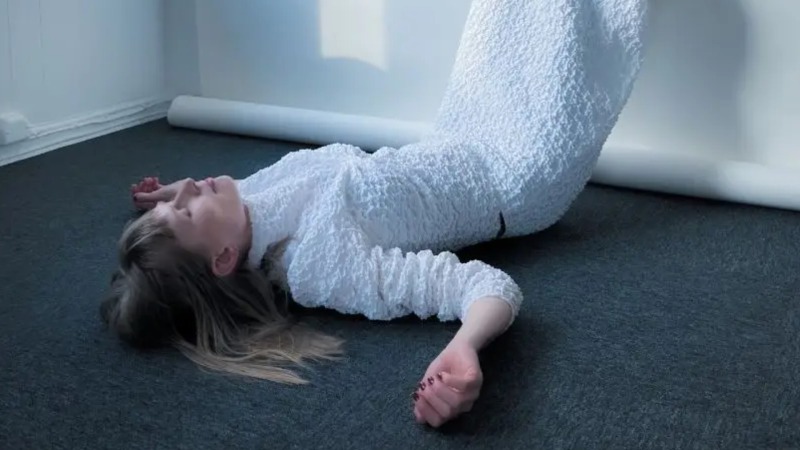Jenny Hval Searches For the Heart Note on Iris Silver Mist
The songs on the Norwegian musician’s ninth album evaporate and condense into each other. Hval’s usual idiosyncrasies and specificities are present—walking her dog in the rain, free bleeding, tinnitus, the sounds of the Oslo subway—while she engages in new sonic spaces.

Iris Silver Mist, the new album from Norwegian art-pop polymath Jenny Hval, is, in many ways, music about absence and music about attunement—music about the absence of music itself. On the record, she ponders the early days of lockdown when performance, smoke-filled clubs, and live music disappeared from her life in an instant. This sense of dislocation—from a practice, from a place, from the body—suffuses the whole album, which is icy and reflective, with hints of Vespertine and Laurie Anderson. The pandemic was characterized not by our closeness, but by its cavernous gaps and the objects we sent in our place: snail mail, flowers, a bottle of smoky mezcal from our stockpile, or an olive oil polenta cake with orange and rosemary left on the doorstep. This is a part of what remains from that time: the smells, the objects, and the lack.
-

-

-

-

-

-

-

-

-

-

-

-

-

-

-

-

-

-

-

-

-

-

-

-

-

-

-

-

-

-

-

-

-

-

-

-

-

-

-

-








































